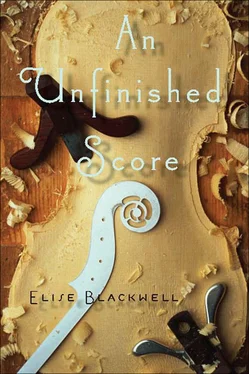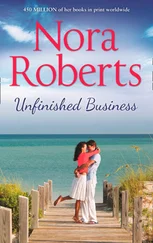The service is followed by a scattering of ashes from a small rented yacht.
“He would want to be in the ocean,” Suzanne whispers to Ben, holding his arm, trying to say and do the right thing.
Overhearing, Ben’s sister says, “He would want to be with our father. This is where our father is.”
“Of course.” Suzanne mutes her voice. “That’s part of what I meant.”
Ben’s mother joins them at the prow on the way back to shore. With her regal stature, she reminds Suzanne, just a little, of Olivia. Or, more accurate: she reminds her of Olivia come unhinged. Though her lipstick is perfectly applied, the mouth underneath still sits crooked, makes her frightening.
“Such a terrible, terrible accident,” she says. “I know he would have found the right kind of woman if this hadn’t happened. Then he would have been all right. He still could have done so much in life. He would have had children and a business, everything a man’s supposed to have.”
Suzanne is still not certain of the surrounding details — she has not wanted to pressure Ben — but she knows that Charlie took his head off with a shotgun and that his mother has not cried in front of anyone.
Ben walks away from them and stands alone at the back of the boat, looking out to the sea that holds the remains of the only other men in his family. Suzanne faces the curvature of the shoreline, the wind off the ocean buffeting her back, her hair lashing her face in irritating strands. The sounds of wind and wave and fluttering sail meld into a single wail, its tone at first cello-like and then giving way to a plaintive bassoon and finally the sound of sea from a shell. In that moment, Suzanne hears the very sound of grief.
Charlie’s letter arrives two days after Ben and Suzanne return home. The sense of strangeness is immediate because the envelope is addressed to Suzanne and because Charlie never sent letters. He’d call occasionally and talk to whomever answered. Sometimes he would forward an email with a surfing joke — once even a viola joke that not even Petra knew — but he never mailed paper.
Suzanne sits on the porch stairs. She waves at the neighbor across the street, who tends her yard guarded by her dogs, and watches a couple of cars pass. She hears them slow briefly at the stop sign at the end of the street, then turn onto the 206. Finally she opens the envelope, conscious that it is one of the last things that Charlie may have handled: folding the sheet, licking the seal and the stamp, writing her name and address in blue ballpoint.
The letter begins with a sweet salutation, followed by an apology for pain inflicted on her and on Ben. It is a suicide note, because it was written by a suicide, but it lacks the explanation for the act that such letters are supposed to provide. “I’m going to blow off my head so there can be no revision of the cause of death. I am sending you this so that my mother cannot destroy it and make everyone pretend it was not suicide, which is what she did when my father killed himself. She denied us his last words. Now you have mine. I have lived. I have loved saltwater. Warm or cold, sunny or overcast or raining, I love surfing. In the ocean I feel at home. On land I do not. Soon I will be in the ocean forever.”
Suzanne inhales and exhales to slow her speeding heartbeat. She hears light footsteps coming from the kitchen and folds the letter, flipping the envelope to make it anonymous.
“What are you looking at?” Adele signs.
For maybe the first time Suzanne feels compassion for Ben’s mother, a woman who tried to protect her children from an ugly truth. “More junk mail,” she signs, forcing a smile with the lie. “Will you help me make dinner if your mom doesn’t need you? I missed you while we were gone. Meet me in the kitchen. I’ll be right there.”
In her room Suzanne hides Charlie’s letter in her box of secrets, setting it on top, next to the shell he gave her at Folly Beach. She feels shame because she is both hiding the letter and making sure it’s the first thing Ben will see should he open the box. She winces at what this tells her about herself, wonders how she became a person she does not even like.
The kitchen is noticeably bright with the lengthening days of midsummer. Dust motes are visible in the streams of light that slink through the blinds over the sink. Suzanne soaks in the warmth, trying to fix the simple pleasure in her mind.
Under her direction, Adele washes and spins the lettuce, peels the shrimp, measures and mixes the dressing ingredients. Because Adele cannot easily sign while she cooks, their work is mostly wordless.
Once Adele pauses to say, “Next summer I’ll be able to hear.”
Suzanne smiles at her, and the worry must be evident on her face because Adele adds, “Not really hear, I understand, but I like to say that.”
Suzanne returns to slicing the red onion, then looks at Adele straight on. “Are you scared?”
Adele shrugs, makes the signs for yes and no . She opens a can of mandarin oranges and drains the syrup into the sink. Due to the cut of her tank top, her wing-like shoulder blades are visible, and Suzanne can think only of a bird — delicate but strong enough to survive — though she knows it is wrong to reduce Adele to anything other than who she is.
“That seems right,” she says. “It’s normal to be scared before an operation, but you’re right there’s nothing to be afraid of. It’s something you have to go through once to get where you want to be.”
An hour later they are eating the supper with Ben and Petra. Petra opens a bottle of white wine and grows chatty with her second glass.
“Okay, okay,” she said. “A violist was crying and screaming at the oboe player sitting behind him. I’m making it a him , Suzanne, just for you. Okay, so this violist was crying and screaming at the oboe player. Finally the conductor asked him why he was so upset, and the violist said, ‘The oboist reached over and turned one of my pegs, and now my viola is out of tune.’ The conductor nods and asks him doesn’t he think he’s overreacting, and the violist screams, ‘I am not overreacting! He won’t tell me which peg he turned!’”
Suzanne smiles and nods her recognition; of course she has heard it before.
“Absolutely hilarious,” Ben says softly, staring stonily at Petra.
“Here’s one,” Suzanne says. “A viola player is finally tired of being so unappreciated, and she’s tired of all the stupid viola jokes, so she decides it’s time for a change and walks into a shop and says, ‘I’d like to buy a violin.’ And the shopkeeper says, ‘You must be a violist.’ So the viola player says, ‘How can you tell?’”
“Because it’s an ice-cream shop!” Petra exclaims.
Adele looks around to gauge everyone’s reactions, to see if she is supposed to laugh now. Her expectant face collapses when she sees Ben push away his plate and stand. “Excuse me.”
A minute later Suzanne hears the front door fall shut. She continues to eat, encouraging Adele to do the same.
“What’s with him?” Petra asks.
Suzanne looks at her while Adele is looking at her plate and whispers, “His brother just died, in case you forgot.”
Petra’s voice has no tone that Suzanne can interpret as sarcasm, but it’s hard to accept at face value when she says, “I’m sorry. I did forget.”
Suzanne watches Petra drain her glass and refill. “I’ll clear the table.”
Ben is gone for hours. After Petra and Adele go to bed, Suzanne waits for him out front, the porch light off but the living room behind her still lit. When he returns, she waits for him to go inside and come back out before she asks him about his father. The humidity slows their already careful words.
Читать дальше












